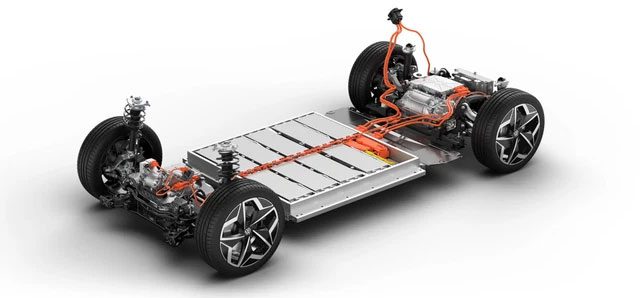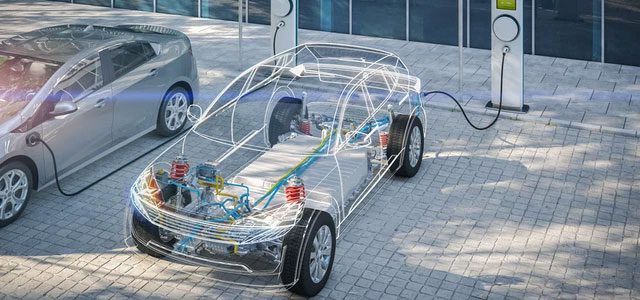This is indeed a question that is not at all silly. Any battery currently on the market will eventually degrade. In the case of lithium-ion batteries, the continuous charging and discharging process will cause them to lose their original capacity over time.
A specific example is the battery in your old laptop. If it goes through too many charge cycles, the battery will no longer hold a charge like it did when it was new, and the only way to keep it functioning is to keep it plugged in regularly. Depending on the device, this typically occurs after about 2 to 4 years of use.
So what about electric vehicles? Do electric vehicle batteries have an average lifespan?
Data Analysis from Older EV Models

Electric vehicles that have been in operation for about 3 years show a slight 2% decrease in battery capacity compared to when they were new.
The EV market has its long-time “veterans,” such as the Nissan Leaf and Tesla, which continue to operate well and challenge all doubts.
A survey conducted in 2020 by the consumer review magazine Which? revealed that EV batteries do not degrade as quickly as we often fear.
According to the results gathered from 1,016 EV users surveyed, electric vehicles that have been in operation for about 3 years show a slight 2% decrease in battery capacity compared to when they were new. Meanwhile, the batteries of 6-year-old EVs only decrease by a maximum of 8%.
This means that after 3 years of operation, an EV with a range of 395 km can still travel 390 km on a full charge (a decrease of 5 km), and after 6 years, this number drops to 363.5 km (a decrease of 31.5 km).
Don’t forget that current EV battery technology is still quite young, only a few years old!
What Do Experts Say?
With modern battery technology, the U.S. National Renewable Energy Laboratory estimates that EV batteries can last between 12 to 15 years under normal climate conditions.
Similarly, JB Straubel, co-founder and former CTO of Tesla, stated that EV batteries can perform well for 15 years. “This is a subjective estimate depending on people’s purposes for their vehicles, but I believe in most cases, the battery will work well for 15 years. I think the battery lifespan will be equivalent to the vehicle’s lifespan.”
Isobel Sheldon, the strategic director of Britishvolt, shares a similar view, stating that EV batteries have a lifespan of about 12 years.
Automakers Are Taking a Cautious Approach

VinFast, a young electric vehicle company, has even extended its vehicle warranty to 10 years.
A sign that the lifespan of EV batteries is reflected in the manufacturer’s warranty period. Warranty policies often cover either a specific time frame or a certain number of kilometers driven, ensuring that your vehicle’s battery will maintain 70% of its original capacity until the warranty expires.
Companies like Tesla, BMW, Nissan, and Volkswagen offer warranties of up to 8 years or 160,000 km, depending on which milestone is reached first.
Kia has a warranty period limited to 7 years, while Hyundai offers a more generous warranty of up to 200,000 km. VinFast, a young electric vehicle company, has even extended its vehicle warranty to 10 years, where the battery will be completely replaced if its capacity drops below 70% (battery degradation).
Conclusion
To get a definitive answer, we will have to wait until EVs become more widespread and have enough time for their batteries to degrade – which could be in the next decade.
Nevertheless, data collected from older EV models and information provided by manufacturers indicate that the average lifespan of an EV battery is about 10 years, which is nearly equivalent to the average lifespan of the vehicle itself.
Therefore, it is likely that your vehicle will… malfunction before the battery encounters issues. And unless you plan to drive your EV until it becomes a collector’s item, there’s no need to worry too much about battery degradation!





















































